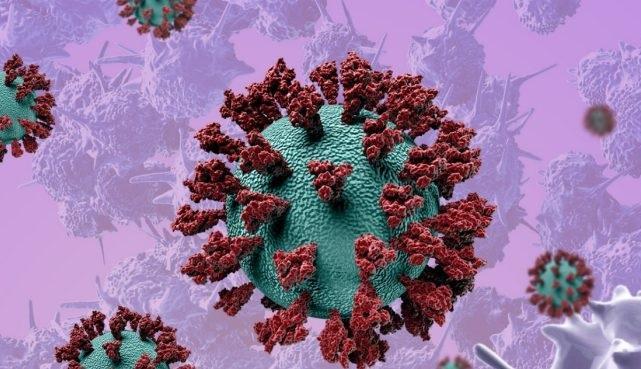
The resurgence in COVID-19 cases in most places across the world is said to be fuelled by the Delta variant. The Delta variant of the coronavirus has now spread to more than 100 countries and is said to be the most widely prevalent SARS-CoV-2 variant in the world.
After India where it was first discovered, the Delta variant, also known by its scientific name B.1.617.2, is fast spreading in all other regions of the world as well, replacing the previously prevalent variants to become the most dominant one.
Of the four WHO variants of concern – Delta, Alpha, Beta, Gamma, the Delta variant of COVID-19 is the most transmissible. Studies have suggested that the Delta variant is about 50% more transmissible than the Alpha variant, which itself has been twice as transmissible as the original virus at the start of the pandemic.
There has been a steep rise in the detection of the Delta variant in Indonesia since the start of June. Over 90% of the virus samples from Indonesia sent for genome sequencing after the middle of June have turned out to be of the Delta variant.
Australia reported its biggest daily rise in COVID-19 cases this year, fuelled by a fast-growing outbreak of the Delta variant in Sydney despite the country’s biggest city entering its third week of lockdown.
However, the good thing is that studies suggest that the current vaccines are all effective against the Delta variant as well, at least in suppressing the severity of the disease once the infection has happened.
Spread of Delta & other variants of COVID-19
According to the WHO, the Delta variant has now been found in at least 111 countries. The Alpha variant, first discovered in the United Kingdom, has been reported from as many as 178 countries.
The Beta variant, the one that was first found in South Africa, has a presence in 123 countries now. The Gamma variant, the fourth variant of concern as identified by the WHO, is present in at least 75 countries.
But going by the speed with which the Delta variant is spreading, this could change very soon. In the second week of July, the Delta variant was found in at least 15 new countries, as per WHO.
The resurgence in cases in most places is being fuelled by the Delta variant. Brazil, the UK, and more recently, Indonesia, have been reporting more cases than India for several days. South Korea reports record daily infections as Delta variant drives surge.
There is a fast-growing outbreak of the Delta variant in Sydney.
For countries in Latin America, such as Argentina or Colombia the Lambda variant is more dominant.
Country-wise cases
Brazil is still reporting over 40,000 COVID-19 cases per day.
The daily count in the UK has crossed 50,000 in the last few days. Even Thailand and Bangladesh have been reporting more than 10,000 cases a day.
The biggest surge in the Southeast Asian region is seen in Indonesia with over 30,000 cases per day. In the UK, barely 2% of the genome sequences until April had found the Delta variant. However, in July it was over 90% of genome sequences.
In the United States, this number is around 70% but there too, it is showing an increasing trend. Globally, only 9% of all the genome sequences since the start of the pandemic have found the Delta variant. In July, this is more than 90%.
In India, the Delta variant was found in 40% of the genome sequences since the start of the pandemic, but over 95% in the sequences done in July.











